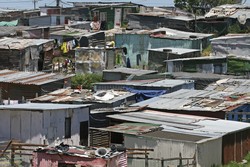Rural-city connections and social transformation in sub-Saharan Africa
Researchers on the project RURBANAFRICA(opens in new window) (African rural-city connections) explored assumptions that African urbanisation leads to increased poverty and negatively impacts economic growth. The work sought to understand the connections between rural areas and cities – knowledge deemed critical to planning for future needs of urban residents in sub-Saharan African countries. The study focused on agricultural transformation, rural livelihoods, city dynamics and access to services. Researchers examined linkages among rural transformations, mobility, and processes of urbanisation processes through case studies of Cameroon, Ghana, Rwanda and Tanzania. The team looked at how these key themes related to poverty in the four sub-Saharan African countries. RURBANAFRICA found, across Cameroon, Ghana and Tanzania, similar trends in agricultural developments and policies, but much more variable trends in urbanisation. The work showed that rural transformation clearly interacts with urbanisation and urban-based economies. This in turn links with increasingly multilocal livelihood arrangements, multidirectional migration flows and the formation of small urban centres in rural regions. Further, urban growth was seen to be increasingly driven by natural growth rather than migration. This indicates that rural-urban connections are not as tangible and unidirectional as popular assumptions suggest. Also, policy research and consultations revealed that the complex links between urbanisation dynamics and rural transformations are poorly mirrored in governance and planning at local and national levels. RURBANAFRICA therefore emphasised the need for new governance architecture. A better understanding of how regional, national and local policies and knowledge environments address rural-city connections in relation to poverty reduction can stimulate policy dialogue and research capacity. Project research has afforded an improved understanding of how rural-urban connections form social transformation in sub-Saharan Africa. The findings also give new insights into emerging patterns of inequalities and rural poverty vis-à-vis the impacts of agricultural transformations and city dynamics on rural livelihoods. RURBANAFRICA organised workshops, co-authored conference presentations and published papers, and produced four policy briefs. Insights from the case studies and cross-country comparisons can be used in (global) policy debates regarding sustainable housing and urbanisation, territorial development and the United Nations' Sustainable Development Goals.



